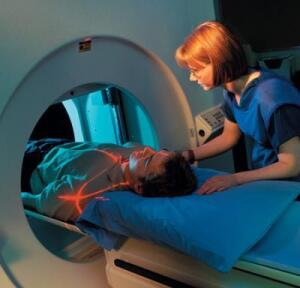by
Brendon Nafziger, DOTmed News Associate Editor | March 29, 2012
$2.7 million will buy you a lot of things. If you're a Chicago area executive, for instance, it nets you a suburban English-style mansion sitting on 1.7 leafy acres with a pool shaped like the Batman logo-- a real estate curiosity recently unearthed by the Chicago Tribune. If your tastes run more to imported French-German sports cars, you can tool around in the Bugatti Veyron 16.4 Super Sport, which, at a clocked speed of 267 miles per hour, is one of the fastest street-legal cars in the world. (Only 40 were ever made, apparently; so if you don't own one now, you might be out of luck.)
But if you're an academic medical center interested in running cutting-edge imaging studies, $2.7 million is the price tag for something else entirely: a top-of-the-line CT scanner.
A recent examination of CT costs and trends shows scanners are still a major drain on capital equipment budgets, especially at the high end. And new technology that lets doctors reduce radiation dose is helping to buoy costs of the equipment even as it becomes increasingly important to patients who are growing smarter about medical imaging risks.



Ad Statistics
Times Displayed: 1581
Times Visited: 8 Keep biomedical devices ready to go, so care teams can be ready to care for patients. GE HealthCare’s ReadySee™ helps overcome frustrations due to lack of network and device visibility, manual troubleshooting, and downtime.
"[Patients are] definitely asking more questions about dose," Jason Launders, chief medical physicist with ECRI Institute, who conducted the research, told DOTmed News. "They might not know the ins and outs, but they're definitely more knowledgeable."
Cost analysis
Manufacturers are famously tight-lipped about the costs of health care products and services. Contracts with hospitals for different kinds of equipment or supplies, for instance, often come with nondisclosure clauses. But recently, ECRI Institute, a health care research nonprofit, looked at CT pricing and buying patterns by turning to its database of nearly 2,500 hospitals that hire its consulting service, called SELECTPlus market analytics. The results were published this month. (To register to download a copy of the CT report, go here:
https://www.ecri.org/ctscan.)
The database works like this: hospitals submit pricing data for stuff they buy or are thinking of buying to ECRI. The group then works with the hospital to make sure they're getting the best deal. "We get 400 prices to analyze a day for critical items, from beds, tables and lights, all the way up to high-end imaging systems. Anything a hospital's buying we consider within the scope of this service," Jen Myers, vice president of SELECTPlus services, told DOTmed News.
Real costs
By looking over its CT data, what ECRI found is that CT scanners, while still hugely expensive, in some ways have become more affordable for providers.

